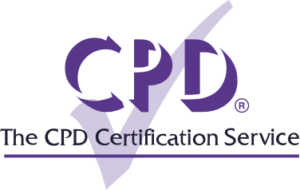In this Bankers CPD Guide
Why do Bankers need CPD?

A banker is a professional who works in the banking industry. They are responsible for handling financial transactions, such as deposits, withdrawals and loans. Bankers also provide advice and assistance to customers in managing their finances, and often work to promote their own bank’s products and services. A banker may work in various roles such as a clerk, a loan officer, a financial adviser or a manager. In general, bankers play an important role in the economy by facilitating financial transactions and promoting economic growth.
The typical daily tasks of a banker may vary depending on their role, but some common ones include managing customer accounts, processing financial transactions, providing financial advice and assistance, analysing financial data, and ensuring compliance with regulations and policies. They may also be responsible for meeting sales targets, maintaining relationships with clients, and participating in team meetings and training sessions.
There are several types of bankers, including retail bankers who work with individual customers and small businesses, investment bankers who help companies raise money through investments, commercial bankers who work with large corporations, and central bankers who manage a country’s monetary policy. Additionally, there are also private bankers who provide personalised financial services to high-net-worth individuals, and wealth management bankers who help clients manage their investments.
What our customers have to say
Dan King
Mobilisation, Training & Performance Manager

Sophie Aiken
HR Manager

Harriet Lee
Retail Recruitment Manager

What CPD courses do Bankers need?
Bankers often have a lot of responsibility in helping people to ensure that their money is safe and in providing a high-quality service. The role can be extremely pressured depending on the type of customer you are working with. The higher value the client, the higher the responsibility.
Some popular courses that we offer that are suited to a banker include:
Understanding GDPR – the GDPR is something that all businesses should have knowledge of. This legislation is fairly new and only came into effect in May 2018. This course will look at the key principles of the GDPR and what the aims of the legislation are. It will look at the legal responsibilities that businesses have to comply with.
Anti-Bribery Awareness – working with money places you at risk of bribery. Throughout this course, you will learn what bribery is, the history of bribery and examples of bribery. You will also explore what bribery might look like in the business world and the potential consequences of accepting a bribe, offering a bribe and failing to prevent bribery. You will also explore The Bribery Act 2010 and learn how to write an anti-bribery policy.
Anti-Money Laundering – in this course you will learn about the concepts of money laundering and terrorist financing, as well as the efforts that are being made to prevent them. You will also learn about the types of crime associated with money laundering, the negative social and economic impact that they can have and the scale of these crimes.
Customer Service Skills – this course will help you gain a greater understanding of how to anticipate reactions and expectations from customers and acknowledge that some customers can be tricky. You will learn the best techniques in order to stay professional and calm in these situations.
DSE Awareness – it is likely that a banker will work at a computer for much of the working day. This course explains everything to do with display screen equipment (DSE) and the risks this poses. When working at a desk for extended periods of time, it is important to ensure the workstation is planned in order to avoid stress and strain on the user.
Gambling Awareness – working as a banker, you may come across customers who have a gambling problem. This course is designed to raise more awareness when it comes to gambling. We’ll consider what gambling is exactly, and why this can become problematic for some people. You will explore the effects of gambling on the person, their friends and family. As well as the signs and symptoms of a problematic gambler, at the end of the course you will explore how gamblers can be supported to stop gambling.
Modern Slavery Awareness – not having control of finances is a common sign that a person could be a victim of modern slavery. Working in a bank may place you as a key person that can spot the signs of modern slavery. This modern slavery course will give you a detailed insight into what modern slavery and human trafficking are, UK legislation and how to spot the signs of modern slavery and offer support.
Unconscious Bias – in this course, you will gain a greater understanding of what unconscious bias is and how it affects our decision-making. You will also look at the different types of unconscious bias, along with examples of each. Towards the end of the course, you will explore unconscious bias in the workplace and learn how to control and overcome unconscious bias.
Download our CPD trackerA guide to CPD for Bankers
To become a banker, short courses coupled with some work experience will ensure that you have the appropriate credentials to become a banker. However, to work high up in the industry (such as an investment banker), a degree in finance or a related field is highly desirable. Some banks may also require additional professional qualifications. It is also important to have strong analytical, communication and problem-solving skills to be able to interpret financial data correctly and accurately. Depending on the specific role, knowledge of financial regulations and risk management is also necessary.
The main regulator for banks in the UK is the Financial Conduct Authority (FCA), which oversees the conduct of financial institutions to ensure they act in the best interests of consumers. The Prudential Regulation Authority (PRA) is also responsible for regulating and supervising financial institutions to maintain financial stability in the UK.
To maintain professional competence and fulfil regulatory requirements from the FCA and PRA, bankers are required to complete Continuing Professional Development (CPD) training. This training helps ensure that bankers stay up to date with the latest developments in the industry and can provide high-quality services to their clients. Failure to complete CPD training can result in disciplinary action and penalties.
CPD certificates
Any course that you complete with CPD Online College will result in you receiving a CPD certificate. This certifies that you have successfully worked your way through the course, passing the end of course quiz. Upon completing a course you will receive your CPD certificate straight away so you can download this to your computer. Alternatively, we can post your certificate directly to your address. We advise that you keep your CPD certificate safe so that you can show it to your employer and regulator when required.
Logging CPD hours
A log of CPD hours is a way to keep track of the amount of time you spend working on CPD training. Some industries require a set number of CPD hours for workers to complete in order to meet regulatory standards, so keeping a log of CPD hours is a simple way of meeting this. You can note the date and time that you work on your CPD course, as well as any other CPD training that you undertake.
Keeping evidence
Any CPD training that you do can be used as CPD evidence. This includes your CPD course certificate, your log of CPD hours, and also any other training activity that you embark on.
Some examples of other CPD training activities you could do include:
- Working with a mentor.
- Conducting online research.
- Attending an industry conference.
- Job shadowing other colleagues.
- Listening to podcasts.
Whichever CPD activities you choose to do, you can keep a piece of evidence to showcase the CPD training that you have completed.
Renewing CPD certificates
You should renew your CPD certificates every two years to keep up to date with any changes in your industry. All industries have frequent changes as legislation, guidance, regulation and policies change. By renewing your CPD certificate you are ensuring that you are always working to the correct and most recent knowledge.
























